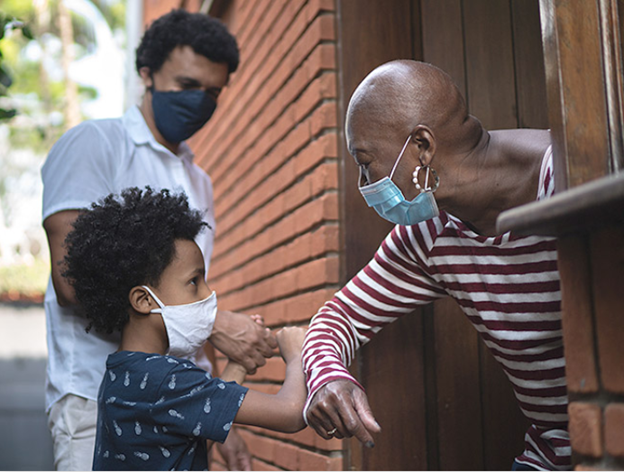
Photo courtesy of Kaiser Permanente.
In Northern California, grant funding to three grassroots and nonprofit organizations, including one in Contra Costa County, will address structures and practices that prevent communities of color from achieving good health and well-being.
By Kerri Leedy, PR and Media Relations Manager, Kaiser Permanente Northern California
 OAKLAND, CA – On Martin Luther King, Jr. Day, Kaiser Permanente, the nation’s largest integrated, nonprofit health system, announced it has awarded $8.15 million to support dozens of nonprofit and community-based organizations whose programs address systemic racism and its accompanying trauma on individuals and communities of color. These grants are part of the $25 million commitment Kaiser Permanente announced in June 2020 to promote health equity and break the cycle of racial inequities, injustices, and stresses that lead to poor health outcomes for its members and communities.
OAKLAND, CA – On Martin Luther King, Jr. Day, Kaiser Permanente, the nation’s largest integrated, nonprofit health system, announced it has awarded $8.15 million to support dozens of nonprofit and community-based organizations whose programs address systemic racism and its accompanying trauma on individuals and communities of color. These grants are part of the $25 million commitment Kaiser Permanente announced in June 2020 to promote health equity and break the cycle of racial inequities, injustices, and stresses that lead to poor health outcomes for its members and communities.
“As we reflect on the legacy of Martin Luther King Jr., I hope Kaiser Permanente is one of many voices plainly saying that there is much, much work still to be done to realize Dr. King’s ideal of an equitable society that guarantees every individual the opportunity to thrive,” said Greg A. Adams, Kaiser Permanente chairman and CEO. “I am encouraged as I see what progress is possible through organization, activism, and advocacy — and I want our support to enable future generations to follow that path to create change.”
This first set of grants, awarded to 39 organizations in eight U.S. states and the District of Columbia, support established national and regional community-based organizations led by people of color, addressing racial and social justice or trauma, including the lifelong impacts of adverse childhood experiences (ACEs).
In Northern California, a total of $975,000 in grants will help three community-based organizations work to end systemic racism and the resulting trauma experienced by people of color.
“It is fitting that we announce these grants on the day when our nation honors Martin Luther King Jr. and his vision of a just and equitable society,” said Yvette Radford, vice president, Kaiser Permanente Northern California External and Community Affairs. “These investments will support our community partners in organizing, advocating, and advancing policies and practices that foster racial equity and justice, healing, and the opportunity for every individual to thrive.”
The following Northern California organizations will each receive $325,000 over the next 24 months, as part of Kaiser Permanente’s $8.1 million investment:
- RYSE Inc.: Young people of color in Richmond and West Contra Costa will be engaged in RYSE’s leadership pipeline to build the next generation of leaders grounded in racial and social justice. They will work with adult stakeholders to help shape racially just policies and practices.
- Faith in Action Network (PICO California): Leveraging its organizing expertise and deep connections with Black faith leaders, congregations and directly impacted communities, PICO will work to dismantle systemic racism, reconstruct public safety systems, and help heal, protect and save Black lives.
- Public Health Advocates (PHA) in Stockton: Working with youth leaders, PHA will educate students on the impact of trauma, develop a campaign to reduce mental health stigma, and create safe healing and support spaces. PHA will work to address racist policies and practices with bi-weekly education and leadership training of youth to help them understand the relationship between public policy, trauma, and health outcomes.
“This funding sends a message of hope to our youth that they are critical to this movement and have the power to make positive change,” said Tanice Wallace, program manager for Public Health Advocates’ Faces of Resilience program, which will receive additional funding through Kaiser Permanente’s racial equity grants. “Our program helps young people understand the roots of structural racism, then we offer them tools and the opportunity to work toward racial equity in their communities.”
Among the initiatives funded is a $2 million national partnership with PolicyLink to design and scale racial equity strategies, projects, and campaigns. The core issues PolicyLink addresses include housing justice, water equity and climate resilience, corporate racial equity, and reducing inequality.
“To truly honor Dr. King, we must build a just and fair society where all can participate, prosper, and reach their full potential. Sadly, due to us not heeding Dr. King’s charge, more than 100 million people – 1 in 3 Americans – still live in or near poverty,” said Michael McAfee, president and CEO of PolicyLink. “Our partnership with Kaiser Permanente will support creating anti-racist practices and policies inside the organization, within Kaiser Permanente’s vast network, and in the broader society. This project will help to ensure that all people in America — particularly those who face the burdens of structural racism – participate in a just society, live in a healthy community of opportunity, and prosper in an equitable economy.”
As part of this partnership, PolicyLink will also play a role in working with organizations receiving grants – convening, engaging, and mobilizing regional grantees to catalyze learning and action communities. Kaiser Permanente and PolicyLink will evaluate the outcomes of funded programs, with input from a panel of national racial justice and trauma experts, to track and measure overall progress. The grants will be distributed through Kaiser Permanente’s fund at the East Bay Community Foundation.
In addition, in celebration of Martin Luther King Jr. Day, an estimated 1,700 Kaiser Permanente employees in Northern California took part in the organization’s 17th Annual MLK Day of Service. Due to COVID-19, all volunteering was done safely and virtually. Projects ranged from making calls and writing letters to seniors and others who are isolated by the pandemic to creating blankets, masks, and wellness journals for people in need.
Kaiser Permanente Northern California is also donating a 1,000-square-foot mural to the Black Cultural Zone at Oakland’s Liberation Park where it will soon be permanently installed. Two local Oakland artists created the dynamic and colorful piece of art, which depicts images that reflect the Black community and culture.
About Kaiser Permanente
For 75 years, Kaiser Permanente has been committed to shaping the future of health and health care — and helping our members, patients, and communities experience more healthy years. We are recognized as one of America’s leading health care providers and not-for-profit health plans. Since July 21, 1945, Kaiser Permanente’s mission has been to provide high-quality, affordable health care services and to improve the health of our members and the communities we serve. We currently serve 12.4 million members in eight states and the District of Columbia. Care for members and patients is focused on their total health and guided by their personal Permanente Medical Group physicians, specialists and team of caregivers. Our expert and caring medical teams are empowered and supported by industry-leading technology advances and tools for health promotion, disease prevention, state-of-the-art care delivery and world-class chronic disease management. Kaiser Permanente is dedicated to care innovations, clinical research, health education and the support of community health.













 I am an Antioch resident and retired in 2018 from the construction industry after 35 years of working in the Laborers trade. When the Pandemic hit us in March of 2020, I decided to use my experience in refinery PPE (personal protective equipment) and make more fashionable face masks.
I am an Antioch resident and retired in 2018 from the construction industry after 35 years of working in the Laborers trade. When the Pandemic hit us in March of 2020, I decided to use my experience in refinery PPE (personal protective equipment) and make more fashionable face masks.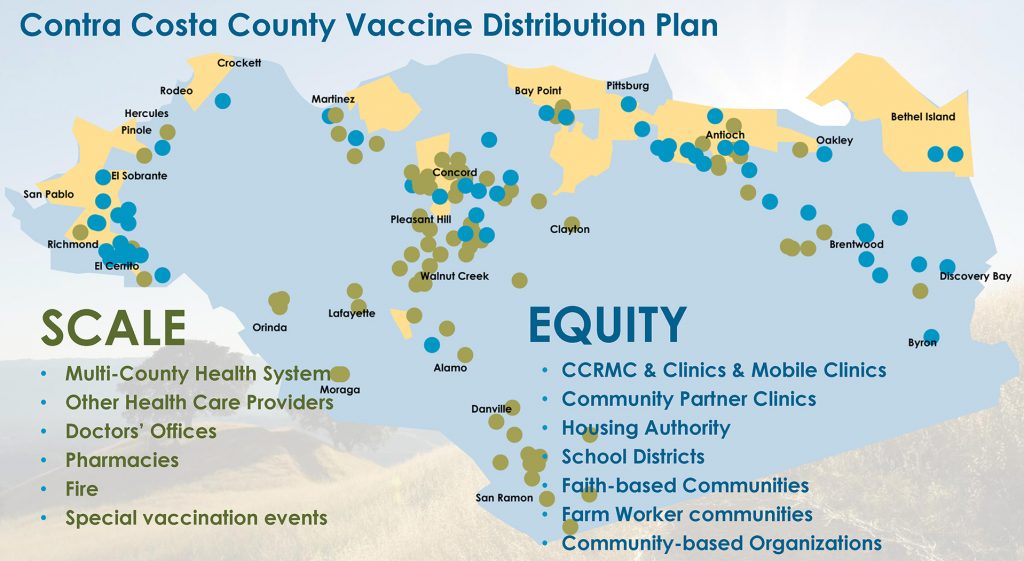
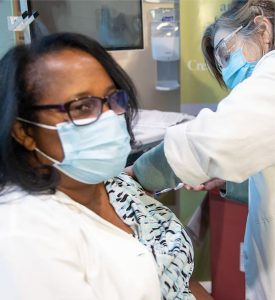

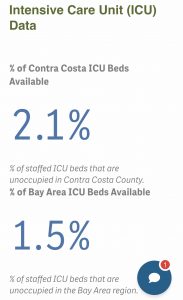


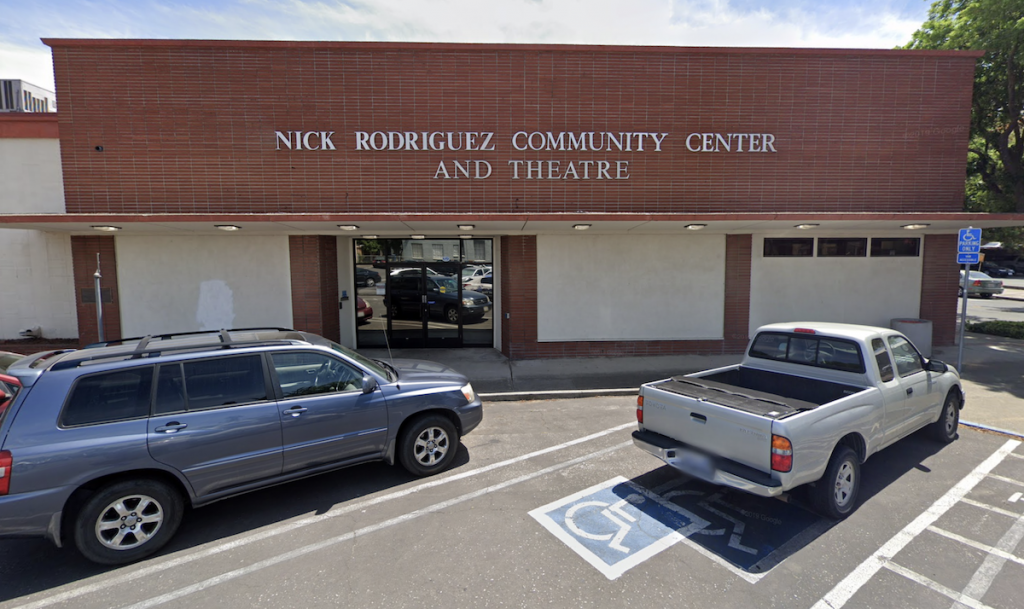


 OAKLAND, CA – On Martin Luther King, Jr. Day, Kaiser Permanente, the nation’s largest integrated, nonprofit health system, announced it has awarded $8.15 million to support dozens of nonprofit and community-based organizations whose programs address systemic racism and its accompanying trauma on individuals and communities of color. These grants are part of the $25 million commitment Kaiser Permanente announced in June 2020 to promote health equity and break the cycle of racial inequities, injustices, and stresses that lead to poor health outcomes for its members and communities.
OAKLAND, CA – On Martin Luther King, Jr. Day, Kaiser Permanente, the nation’s largest integrated, nonprofit health system, announced it has awarded $8.15 million to support dozens of nonprofit and community-based organizations whose programs address systemic racism and its accompanying trauma on individuals and communities of color. These grants are part of the $25 million commitment Kaiser Permanente announced in June 2020 to promote health equity and break the cycle of racial inequities, injustices, and stresses that lead to poor health outcomes for its members and communities.













